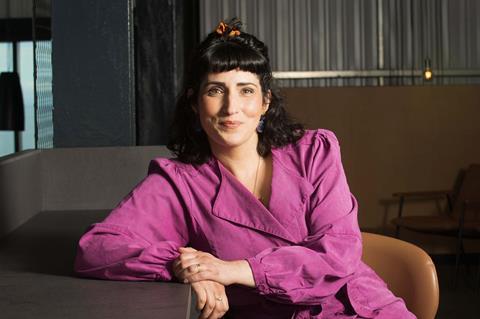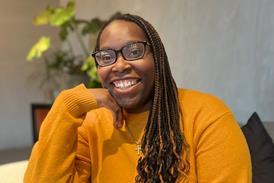
Maryam Hamidi made her name as a writer on radio, stage and children’s TV, but switched her focus to high-end drama and features. These include season two of the BBC’s Vigil as well as Sky’s Lockerbie, about the search for justice by Jim Swire, whose daughter was killed in the bombing of Pan Am flight 103 in 1988. “It’s a complicated path through a man’s experience of grief,” says Hamidi, who also associate produces the five-part limited series.
Hamidi arrived in England as a child when her family fled Iran, then moved to Scotland at 18 to study drama at Edinburgh’s Queen Margaret University and never left the city. “I’ve lived in Scotland longer than I’ve lived anywhere, and I consider myself to be Scottish in politics and soul.”
Hamidi started writing plays in her 20s, putting on shows at the Edinburgh Festival Fringe, then worked as an actress, starring in soap River City, before, aged 30, she started writing full-time following the birth of her first child — although she occasionally “moonlights as an actor”. Selected for BBC Scotland’s Scottish Voices scheme, Hamidi penned episodes of TV shows Molly And Mack, Silverpoint and Hollyoaks.
Her original work, meanwhile, centres mostly on refugee stories, fusing real-life issues with supernatural horror and magical realism, and is “littered with autobiographical detail” — although she does not consider herself a refugee artist. “I feel drawn to these themes because they’re from my lived experience,” she says. “They’re an attempt to grapple with things I feel are underexplored.”
She has written and directed two shorts — Bahar, about a refugee haunted by the death of her daughter, and Bloody Love, a zombie romcom — both of which played the festival circuit.
Currently adapting Sharon Duggal’s novel Should We Fall Behind for Moquette Films and director Jim Loach, Hamidi hopes to make her feature directorial debut with Birthright. In development with Screen Scotland, it explores the tensions that arise when a filmmaker wants to make a documentary about her refugee mother, whose repressed emotions might conceal something darker. “It’s about inherited trauma and the tension within that,” says Hamidi. “But it’s playful.”
Contact: Jessica Cooper, Curtis Brown

























No comments yet